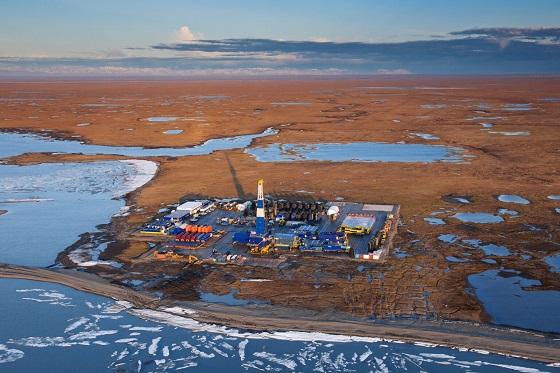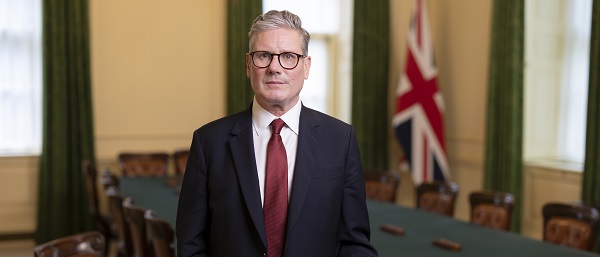Alberta
Premier Smith urges PM Trudeau to talk Ethical Energy Security in meeting with US President Biden

Dear Prime Minister Trudeau:
The arrival of President Joe Biden presents our nation with an opportunity of great significance. It is my request that the federal government uses its platform to focus on collaboration between the U.S. and Canada, highlighting the critical need for North American energy security.
We have a deep, long-standing relationship with the U.S. at both the federal and state levels, which is only growing in importance. In 2022, Alberta surpassed Ontario and Quebec as the largest provincial exporter of goods to the U.S. at $182.5 billion, with energy making up 85 per cent of exports to the United States. Alberta, by far, remains the single largest source of U.S. energy imports.
This economic reality, along with Russia’s invasion of Ukraine, has highlighted that North American energy security must be a top priority for the Government of Canada. I urge you to raise the need for better collaboration between Canada and the U.S. to ensure the continued and enhanced supply of sustainable, affordable, and reliable energy to the U.S.
I recommend that the two governments work to fast-track energy projects in the name of economic security for our democratic partners, as committed to by Deputy Prime Minister Chrystia Freeland. A similar effort is needed in critical minerals as the world shifts to lower emitting sources of energy.
Alberta, through both government policy and industry action, is leading the way on reducing emissions and driving the transition to new sources of energy. New investments in the province are global flagships in clean energy and emissions reductions technology. For example, Pennsylvania’s Air Products will create a world-scale net-zero hydrogen energy complex in Alberta, and Dow is advancing the world’s first net-zero carbon emission integrated polyethylene complex at its existing site near Edmonton. It is also worth noting that Canada’s oil sands operators have announced plans to spend $24 billion on emission-reduction projects by 2030 as part of their commitment to reach net zero by 2050. All of this amounts to a herculean effort undertaken by industry partners, and Alberta’s government, to position ourselves as the foremost leader in emissions reduction and responsible energy production.
As you know, management of oil and gas methane emissions is one of this country’s greatest climate success stories. Collaboration with the U.S. on methane emissions would both advance climate action, and address regulatory inconsistencies between the two countries. As of 2020, methane emissions from the upstream oil and gas sector in Western Canada have decreased by around 44 per cent from the 2014 baseline – ahead of our schedule of 45 percent by 2025. More evidence of Canada, and Alberta, leading the way.
Alberta is home to vast geological potential, an experienced, skilled, workforce, and has the necessary processing and transportation infrastructure in place to support a growing critical minerals sector. For example, technological advances to extract minerals from underground brine solutions are found throughout Alberta. These extraction technologies could result in a low emission, sustainable source of lithium to meet the demand of our emerging battery value-chain. We would encourage your government to work with the provinces, especially Alberta, on critical minerals and seize the opportunity to collaborate with the U.S. on enhancing North American supply chains.
As the owners and stewards of our world-class natural resources, any discussions involving energy security, natural resources, and trade must fully involve the provinces. I would be pleased to help assist you, and the federal government in advancing the work on North American energy security as well as developing the business cases to increase exports of clean Alberta energy, critical minerals and technologies to the U.S. As is only appropriate when discussing natural resources, and areas of exclusive provincial jurisdiction, I would also request that Premiers be invited to participate in a meeting with the President and his delegation.
I look forward to your response and welcome an opportunity to collaborate. We both agree that the world needs more Canada. It’s imperative that in a time of such uncertainty, and unaffordability, that Alberta, and Canada profile ourselves as the preferred supplier of responsibly produced, ethical energy to the U.S., North America, and the world.
Alberta
Premier Smith: Canadians support agreement between Alberta and Ottawa and the major economic opportunities it could unlock for the benefit of all

From Energy Now
By Premier Danielle Smith
Get the Latest Canadian Focused Energy News Delivered to You! It’s FREE: Quick Sign-Up Here
If Canada wants to lead global energy security efforts, build out sovereign AI infrastructure, increase funding to social programs and national defence and expand trade to new markets, we must unleash the full potential of our vast natural resources and embrace our role as a global energy superpower.
The Alberta-Ottawa Energy agreement is the first step in accomplishing all of these critical objectives.
Recent polling shows that a majority of Canadians are supportive of this agreement and the major economic opportunities it could unlock for the benefit of all Canadians.
As a nation we must embrace two important realities: First, global demand for oil is increasing and second, Canada needs to generate more revenue to address its fiscal challenges.
Nations around the world — including Korea, Japan, India, Taiwan and China in Asia as well as various European nations — continue to ask for Canadian energy. We are perfectly positioned to meet those needs and lead global energy security efforts.
Our heavy oil is not only abundant, it’s responsibly developed, geopolitically stable and backed by decades of proven supply.
If we want to pay down our debt, increase funding to social programs and meet our NATO defence spending commitments, then we need to generate more revenue. And the best way to do so is to leverage our vast natural resources.
At today’s prices, Alberta’s proven oil and gas reserves represent trillions in value.
It’s not just a number; it’s a generational opportunity for Alberta and Canada to secure prosperity and invest in the future of our communities. But to unlock the full potential of this resource, we need the infrastructure to match our ambition.
There is one nation-building project that stands above all others in its ability to deliver economic benefits to Canada — a new bitumen pipeline to Asian markets.
The energy agreement signed on Nov. 27 includes a clear path to the construction of a one-million-plus barrel-per-day bitumen pipeline, with Indigenous co-ownership, that can ensure our province and country are no longer dependent on just one customer to buy our most valuable resource.
Indigenous co-ownership also provide millions in revenue to communities along the route of the project to the northwest coast, contributing toward long-lasting prosperity for their people.
The agreement also recognizes that we can increase oil and gas production while reducing our emissions.
The removal of the oil and gas emissions cap will allow our energy producers to grow and thrive again and the suspension of the federal net-zero power regulations in Alberta will open to doors to major AI data-centre investment.
It also means that Alberta will be a world leader in the development and implementation of emissions-reduction infrastructure — particularly in carbon capture utilization and storage.
The agreement will see Alberta work together with our federal partners and the Pathways companies to commence and complete the world’s largest carbon capture, utilization and storage infrastructure project.
This would make Alberta heavy oil the lowest intensity barrel on the market and displace millions of barrels of heavier-emitting fuels around the globe.
We’re sending a clear message to investors across the world: Alberta and Canada are leaders, not just in oil and gas, but in the innovation and technologies that are cutting per barrel emissions even as we ramp up production.
Where we are going — and where we intend to go with more frequency — is east, west, north and south, across oceans and around the globe. We have the energy other countries need, and will continue to need, for decades to come.
However, this agreement is just the first step in this journey. There is much hard work ahead of us. Trust must be built and earned in this partnership as we move through the next steps of this process.
But it’s very encouraging that Prime Minister Mark Carney has made it clear he is willing to work with Alberta’s government to accomplish our shared goal of making Canada an energy superpower.
That is something we have not seen from a Canadian prime minister in more than a decade.
Together, in good faith, Alberta and Ottawa have taken the first step towards making Canada a global energy superpower for benefit of all Canadians.
Danielle Smith is the Premier of Alberta
Alberta
A Memorandum of Understanding that no Canadian can understand

From the Fraser Institute
The federal and Alberta governments recently released their much-anticipated Memorandum of Understanding (MOU) outlining what it will take to build a pipeline from Alberta, through British Columbia, to tidewater to get more of our oil to markets beyond the United States.
This was great news, according to most in the media: “Ottawa-Alberta deal clears hurdles for West Coast pipeline,” was the top headline on the Globe and Mail’s website, “Carney inks new energy deal with Alberta, paving way to new pipeline” according to the National Post.
And the reaction from the political class? Well, former federal environment minister Steven Guilbeault resigned from Prime Minister Carney’s cabinet, perhaps positively indicating that this agreement might actually produce a new pipeline. Jason Kenney, a former Alberta premier and Harper government cabinet minister, congratulated Prime Minister Carney and Premier Smith on an “historic agreement.” Even Alberta NDP Leader Naheed Nenshi called the MOU “a positive step for our energy future.”
Finally, as Prime Minister Carney promised, Canada might build critical infrastructure “at a speed and scale not seen in generations.”
Given this seemingly great news, I eagerly read the six-page Memorandum of Understanding. Then I read it again and again. Each time, my enthusiasm and understanding diminished rapidly. By the fourth reading, the only objective conclusion I could reach was not that a pipeline would finally be built, but rather that only governments could write an MOU that no Canadian could understand.
The MOU is utterly incoherent. Go ahead, read it for yourself online. It’s only six pages. Here are a few examples.
The agreement states that, “Canada and Alberta agree that the approval, commencement and continued construction of the bitumen pipeline is a prerequisite to the Pathways project.” Then on the next line, “Canada and Alberta agree that the Pathways Project is also a prerequisite to the approval, commencement and continued construction of the bitumen pipeline.”
Two things, of course, cannot logically be prerequisites for each other.
But worry not, under the MOU, Alberta and Ottawa will appoint an “Implementation Committee” to deliver “outcomes” (this is from a federal government that just created the “Major Project Office” to get major projects approved and constructed) including “Determining the means by which Alberta can submit its pipeline application to the Major Projects Office on or before July 1, 2026.”
What does “Determining the means” even mean?
What’s worse is that under the MOU, the application for this pipeline project must be “ready to submit to the Major Projects Office on or before July 1, 2026.” Then it could be another two years (or until 2028) before Ottawa approves the pipeline project. But the MOU states the Pathways Project is to be built in stages, starting in 2027. And that takes us back to the circular reasoning of the prerequisites noted above.
Other conditions needed to move forward include:
The private sector must construct and finance the pipeline. Serious question: which private-sector firm would take this risk? And does the Alberta government plan to indemnify the company against these risks?
Indigenous Peoples must co-own the pipeline project.
Alberta must collaborate with B.C. to ensure British Columbians get a cut or “share substantial economic and financial benefits of the proposed pipeline” in MOU speak.
None of this, of course, addresses the major issue in our country—that is, investors lack clarity on timelines and certainty about project approvals. The Carney government established the Major Project Office to fast-track project approvals and provide greater certainty. Of the 11 project “winners” the federal government has already picked, most either already had approvals or are already at an advanced stage in the process. And one of the most important nation-building projects—a pipeline to get our oil to tidewater—hasn’t even been referred to the Major Project Office.
What message does all this send to the investment community? Have we made it easier to get projects approved? No. Have we made things clearer? No. Business investment in Canada has fallen off a cliff and is down 25 per cent per worker since 2014. We’ve seen a massive outflow of capital from the country, more than $388 billion since 2014.
To change this, Canada needs clear rules and certain timelines for project approvals. Not an opaque Memorandum of Understanding.
-

 illegal immigration2 days ago
illegal immigration2 days agoWhile Trump has southern border secure, hundreds of thousands of illegal immigrants still flooding in from Canada
-

 Censorship Industrial Complex2 days ago
Censorship Industrial Complex2 days agoCanadian bishops condemn Liberal ‘hate speech’ proposal that could criminalize quoting Scripture
-

 Automotive5 hours ago
Automotive5 hours agoTrump Deals Biden’s EV Dreams A Death Blow
-

 Energy1 day ago
Energy1 day agoSenate votes to reopen Alaska Coastal Plain to energy leasing
-

 Censorship Industrial Complex2 days ago
Censorship Industrial Complex2 days agoForeign Leaders Caught Orchestrating Campaign To Censor American Right-Wing Media Companies
-

 Focal Points13 hours ago
Focal Points13 hours agoPharma Bombshell: President Trump Orders Complete Childhood Vaccine Schedule Review
-

 Opinion13 hours ago
Opinion13 hours agoCountry music star Paul Brandt asks Parliament to toughen laws against child porn
-

 Alberta13 hours ago
Alberta13 hours agoPremier Smith: Canadians support agreement between Alberta and Ottawa and the major economic opportunities it could unlock for the benefit of all





